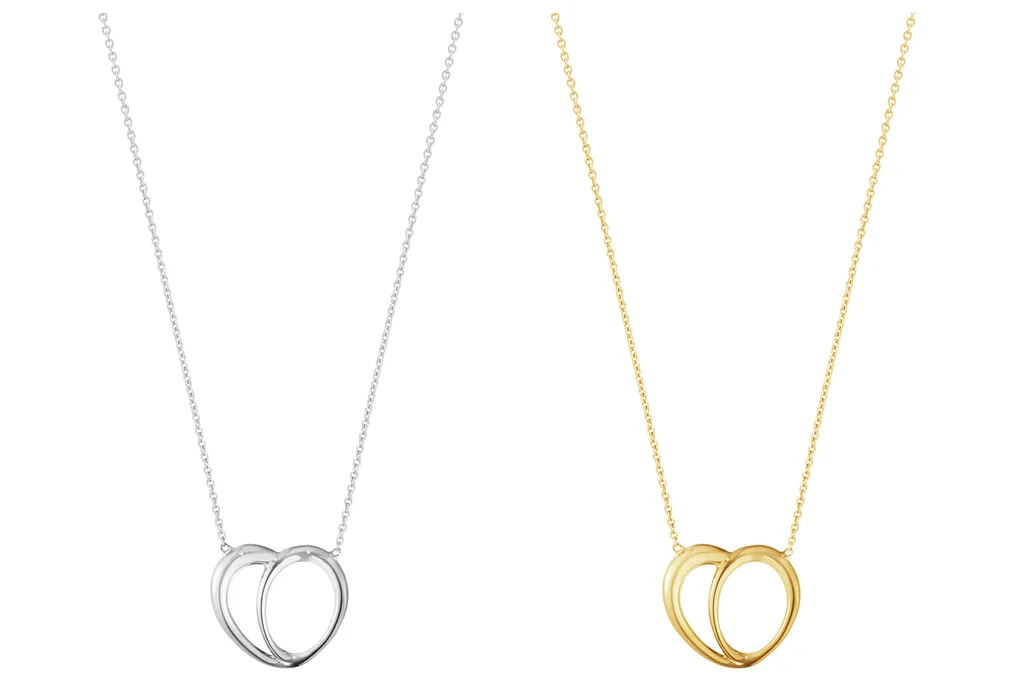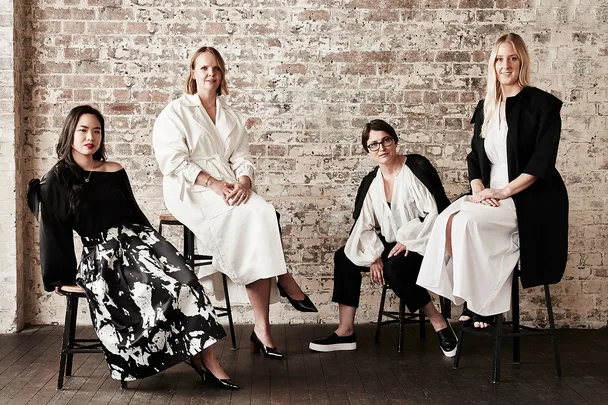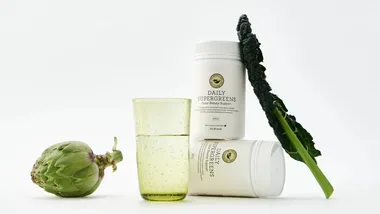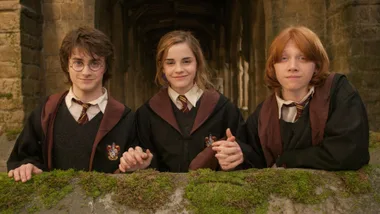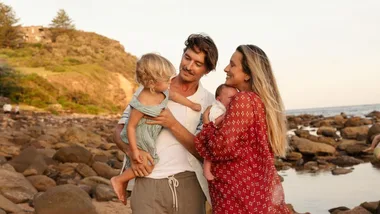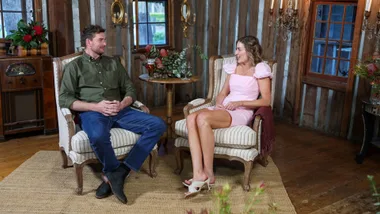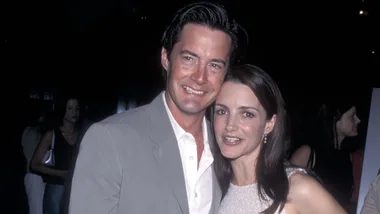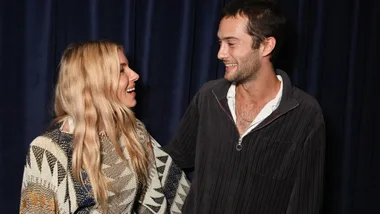Ovarian cancer touches the lives of women fighting the disease, the surgeons who operate on them and the scientists working on a cure. Here, while wearing Georg Jensen’s fund-raising Offspring Heart pendants, those on the front line reveal what cancer has taught them.
THE SURVIVORS
HEATHER HAWKINS, 53
Diagnosed in 2007
When you’re diagnosed with cancer, your world stands still. I woke up in 2007 as a normal working mum, but by the end of the day I was an ovarian cancer patient. I had surgery nine days later and an 18-centimetre tumour was removed. Incredibly it was still at stage one, so it hadn’t spread. If I had left it a few more weeks, I may not be here today.
Two years after my diagnosis, my kids started junior lifesaving and I decided to do my Bronze Medallion, learning how to ocean swim and sand run. I didn’t want to be defined by cancer.
Since then I’ve started running marathons. In 2015, I did one at the North Pole. As I was running in -41°winds, I realised how grateful I was to be alive. I thought, ‘Only a few years ago I was curled up in my hospital bed … now I’m at the North Pole!’ Running marathons is my way of encouraging women who have been through ovarian cancer. My diagnosis has taught me to have an adventurous spirit.
MONIKA TASIC, 28
Diagnosed in 2017
At the end of last year, someone at work asked me if I was pregnant. I told her that was a really inappropriate question, but I did look bloated. I went to the GP and had a CT scan. The next day my doctor called and said they’d found a mass and I would need surgery because they didn’t know if it was in my ovary, uterus or fallopian tubes.
I signed a form to say they could take whatever they needed. I was 27 [so] it felt like I was signing away my future. In the end, they took my right ovary and fallopian tube and I went through nine weeks of chemo. The first two rounds were bearable, but by the third round I couldn’t get out of bed.
In May, my doctor told me I was cancer-free. It was hard to believe, but I decided there had to be a reason I’d had cancer, so I started fundraising to help find an early detection test. I want to help the next girl going to see her doctor thinking she has a gluten intolerance and walking out with an ovarian cancer diagnosis.
JULIE KHAN, 46
Diagnosed in 2010
I wasn’t feeling well towards the end of 2009, so I went to the doctor to have scans on an ovarian cyst that hadn’t been checked in a while. The scans were inconclusive. They thought it was endometriosis, so I went into surgery in April 2010.
I was violently ill when I left the hospital. It wasn’t until my 10-day check-up that I found out they had removed my left ovary and fallopian tube because it was cancerous. I had my uterus, cervix and appendix removed in another surgery.
Because I’d had everything taken from me, I had a moment where I didn’t feel like a woman anymore. I got through it with my family (my daughters were 11 and 12 at the time). Sometimes these things make you stronger and more supportive of others.
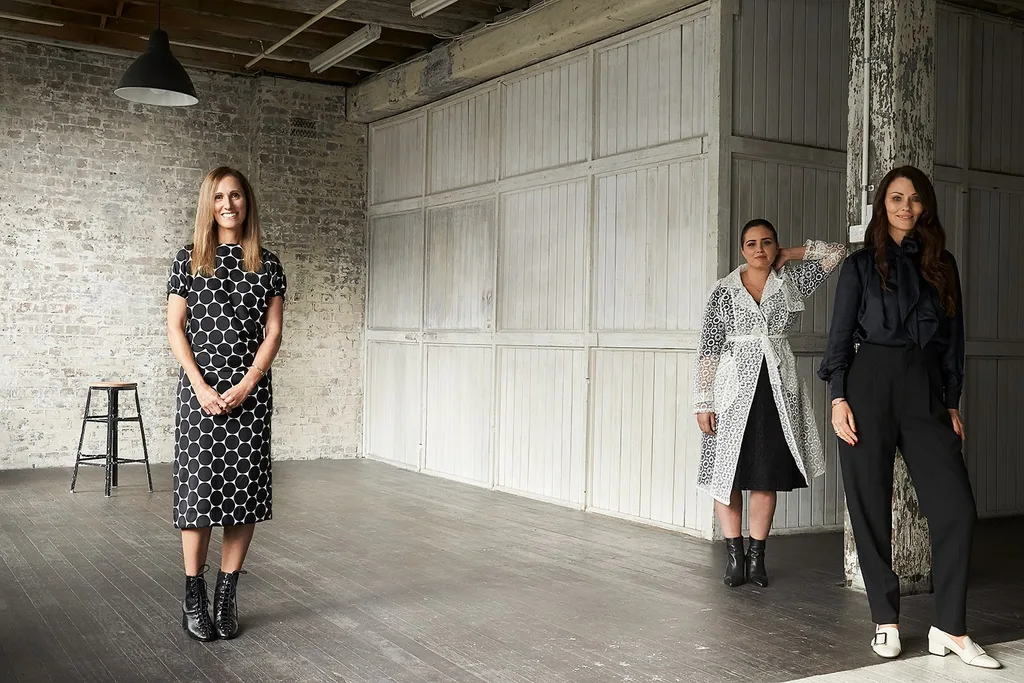
THE CAMPAIGNERS
LUCINDA NOLAN, Ovarian Cancer Research Foundation CEO
My sister-in-law was 54 when she was diagnosed and died from ovarian cancer so I’m passionate about the cause and the OCRF. Ovarian cancer research is undervalued and underfunded so we need to raise awareness about this lethal cancer. The fact that survival rates haven’t progressed for the past couple of decades is a significant issue. It’s our job at the OCRF to push to make sure our voice is heard and to raise as much money as we can to fund promising research into an early detection test for ovarian cancer.
GEORGIE HERBERT, OCRF fundraiser
My mum passed away from ovarian cancer in January last year – after battling the disease for 11 years. When she was first diagnosed, I felt a real sense of helplessness. I wanted to do more than just drive her to the hospital for chemo, so I started entering fun runs to raise money for ovarian cancer research. It was cathartic to roll up my sleeves and do something. Last year, we cycled 1067 kilometres from Adelaide to Melbourne over nine days and raised $120,000 for the OCRF. We called it the Silver Lining Ride because it was the silver lining in what had been a pretty rough year. Mum’s fighting spirit inspired me to do the ride and to live life to the max.
ANNE SULLIVAN, Georg Jensen CEO
As a brand, Georg Jensen is passionate about giving strength to women – so ovarian cancer is very close to all of our hearts. We’re incredibly proud to have been a supporter of ovarian cancer research for four years and this year we’re launching the Offspring Heart pendant with a percentage of proceeds going to the OCRF. We’ve raised a significant amount in the past three years but want to raise even more this year to help find an early detection test for this hideous disease.
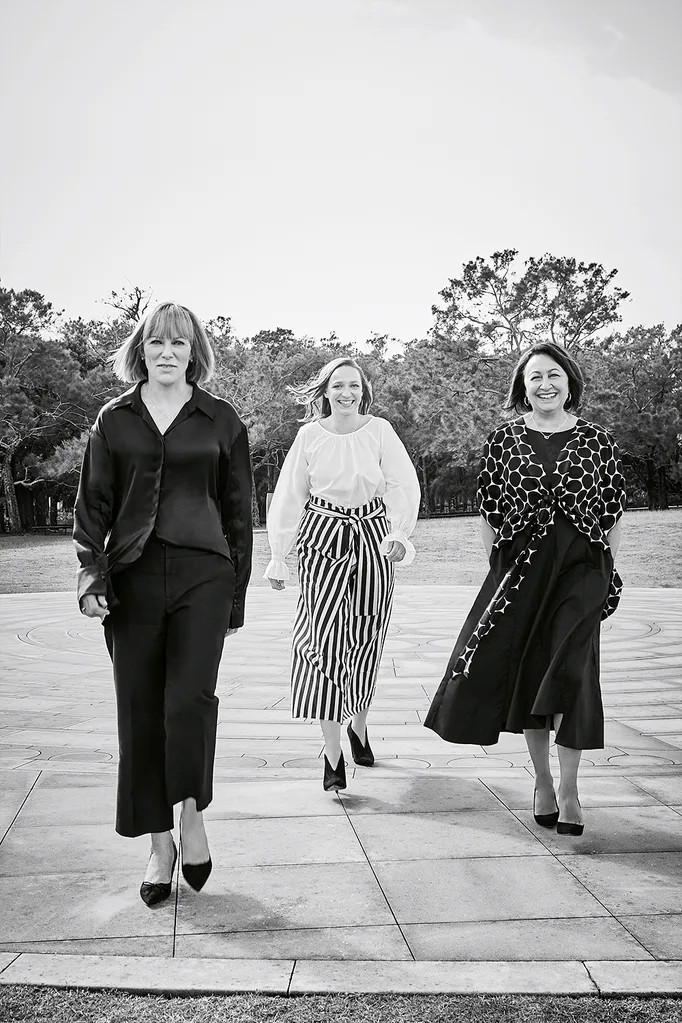
THE LIFESAVERS
DR JANE McNEILAGE
The symptoms of ovarian cancer are very vague: it can be a little bit of bloating or lower abdominal pain. We as women need to be aware of our own bodies. And doctors need to listen to what women are saying to pick up on the early-warning signs.
I’d like people to recognise that the women who have ovarian cancer have a very difficult road to walk down; they need help and support all the way along. As a gynaecological oncologist, I walk the journey with my patients and try to be as supportive as possible.
DR GERALDINE GOSS
The main difference between ovarian cancer and better-known cancers is the long-term outcomes. Overwhelmingly, women who get breast cancer will be cured of their disease because it’s been detected at an early stage. That’s not the case with ovarian cancer.
Because there is no early detection test, ovarian cancer is often found at a very late stage. Most women will need to have multiple rounds of chemotherapy and, unfortunately, most will die from their disease. The thing that will make the most difference is an early detection test.
PROFESSOR THOMAS JOBLING
When patients tragically succumb to this disease, we share the sense of loss with their families. Cancer has taught me a deeper understanding of grief – both the grief that people suffer when they are diagnosed with this disease and the grief families feel when a loved one is taken from them.
I started the OCRF with Liz Heliotis in 1999 because of an obvious need for basic science research into this diffcult disease. We’re proud that the OCRF has provided more than $35 million for research into an early detection test.
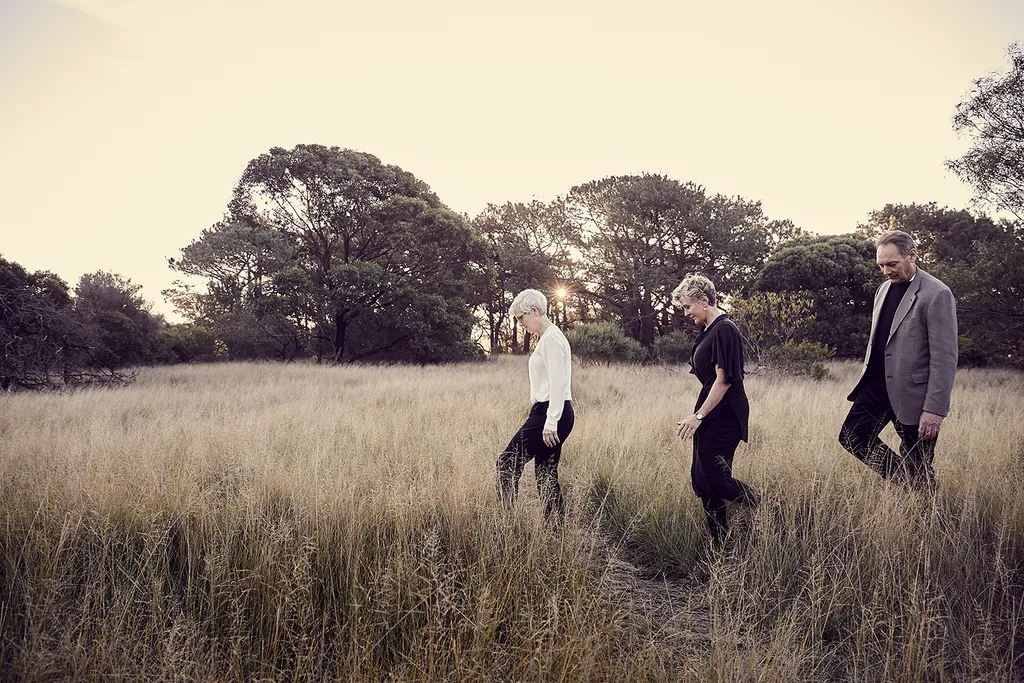
THE FUTURE SHAPERS
NICOLE YUWONO
As a scientist who is researching ovarian cancer for my PhD, I work very closely with ovarian cancer patients in hospital and it can be very distressing. I met a girl who was 13 when she was diagnosed with ovarian cancer – those cases are very sad. But they keep you motivated.
DR CAROLINE FORD
Ovarian cancer is still considered rare, so it doesn’t get a lot of government funding. The OCRF has funded my group of scientists for the past five years and we’re now at the stage of discussing a clinical trial. Being able to do research that will improve patient outcomes is such an honour.
DR KRISTINA WARTON
I’m working to develop a blood test to detect ovarian cancer early – before people have symptoms. That’s important because ovarian cancer is a lot easier to treat when it’s diagnosed early. Having researched cancer for so many years, I’ve learnt that it can happen to anyone. It doesn’t discriminate.
DR CLAIRE HENRY
The statistics show that one woman dies every eight hours from ovarian cancer. At the moment, women with ovarian cancer are treated with a stock-standard generic chemotherapy. We’re trying to find a targeted treatment to improve their outcomes and lives.
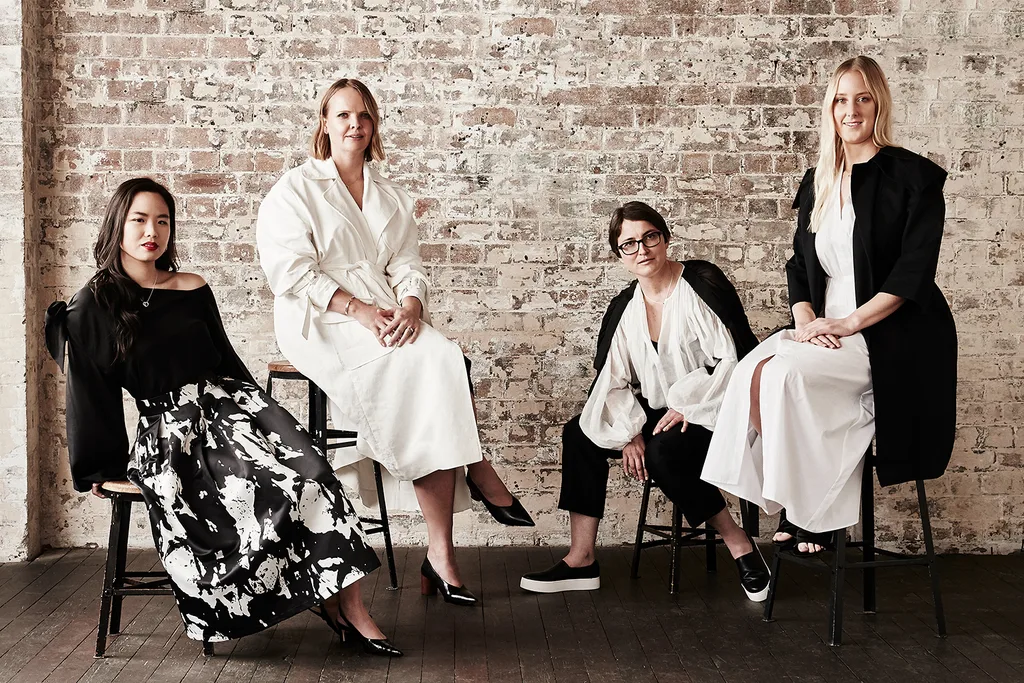
THE FIGHTER
LEANE FLYNN, 50
Diagnosed in April 2017 and again in March this year
At the start of last year, I had some bloating and was urinating more than usual. I put it down to menopause but had a blood test and scan to be sure. When my doctor rang me after the tests, I knew something wasn’t right. When she told me I had ovarian cancer, I went into shock.
I had surgery a couple of weeks after that and they removed a Coke can-size tumour from my ovaries and another one growing between my liver and my diaphragm. I was in the ICU for eight weeks and started chemo after that. It was all very overwhelming and daunting, but every month my blood tests showed the cancer was getting less and less. I finished chemo in November and it was wonderful.
Then, in March this year, I had a bit of stomach pain. I went for a blood test and ultrasound and it felt like Groundhog Day. My doctor called and said, “I wish I had good news for you, but they’ve found something there.” I was shattered. I cried for a whole week. I thought, “Why can’t I just be cured? I’m a good person. I’m prepared to spend every waking moment devoting my life to ovarian cancer, but I don’t want to die for the cause; I don’t want to be a martyr.”
The cancer had spread to my liver, spleen and diaphragm so I went straight back into chemo. We still don’t know if it’s working – we’ll find out in a few months. Statistically it’s not good, but we try not to focus on that. The hardest part is reassuring my daughters [who are 21, 19 and 14]. We all try to pretend it’s not happening. As far as they’re concerned, I’ve gotten through this once and I’ll get through it again.
Cancer has given me perspective. My mantra is: I can sit and cry, or I can get on with my life – it doesn’t change the outcome.
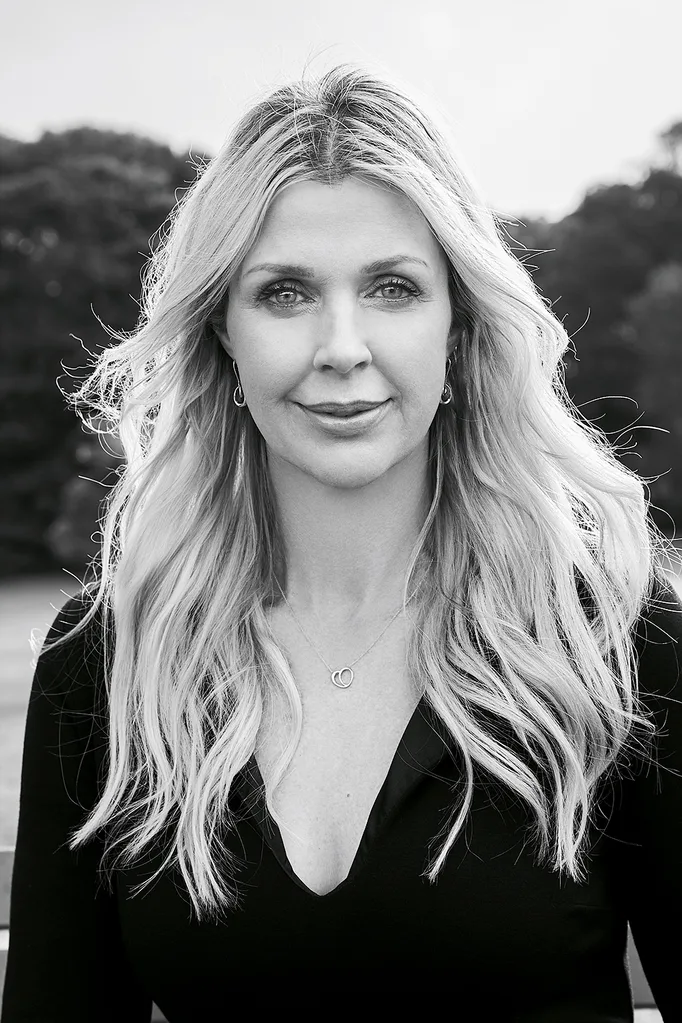
JOIN THE FIGHT
Since launching in 2015, Georg Jensen’s partnership with the Ovarian Cancer Research Foundation (OCRF) has raised more than $250,000. These funds help with its mission to find an early detection test and save women’s lives. This year, Georg Jensen is releasing the Offspring Heart pendant in silver and 18kt gold. The stunning pieces are worn throughout this reportage and are priced at $195 and $995 respectively. Proceeds from their sale will be donated to the OCRF to help the foundation continue its lifesaving work. The pieces are available in-store and online; visit georgjensen.com. To learn more about ovarian cancer, visit ocrf.com.au.
